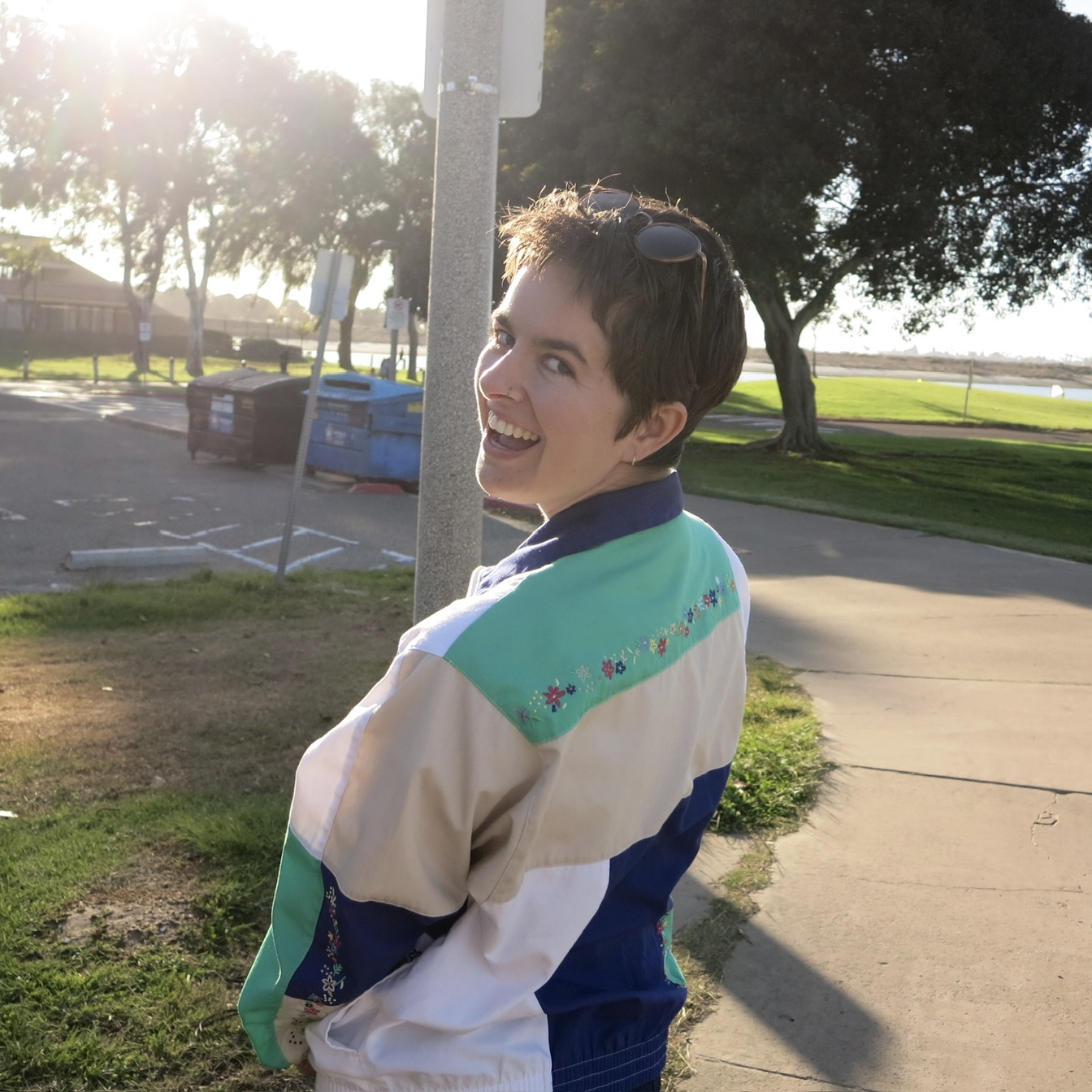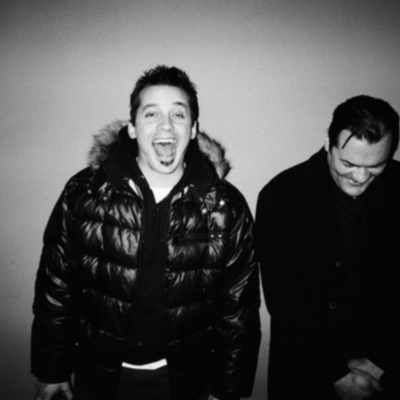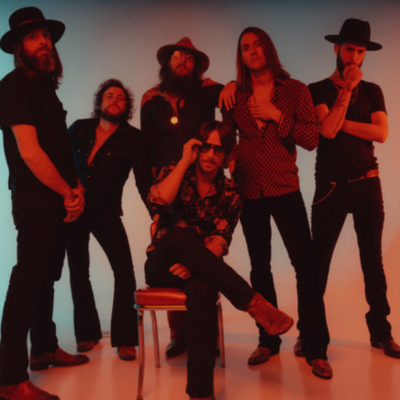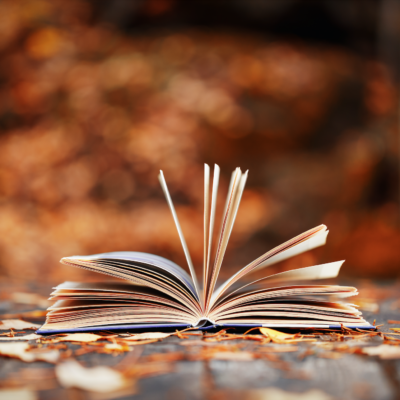When University of Virginia creative writing MFA alumnus H. G. Dierdorff’s debut poetry collection was published in December 2024, the timeliness of its themes of climate collapse and human connection was undeniable. However, these first weeks of 2025 made it all the more relevant, as Richmond, Virginia’s water crisis and the Los Angeles fires reminded us of the fragility of human infrastructure in the face of ecosystemic instability.
Dierdorff’s book, Rain, Wind, Thunder, Fire, Daughter, was selected for the Betsy Joiner Flanagan Award in Poetry, and is part of the Test Site Poetry Series from the University of Nevada Press, for books that “engage the perilous conditions of life in the 21st century, as they pertain to issues of social justice and the earth.” In its pages, Dierdorff grapples with ecocide and climate disasters, her Christian fundamentalist upbringing, and desire, while also bearing witness to the collective history shared by our environs and ourselves.
From the “ponderosa communities that replace steppe sagebrush around 4,000 years ago, 7,000 years after the ancestors of the Salish cross a land bridge from Siberia” to the strip malls and graffiti of Dierdorff’s own youth in eastern Washington, their poems are geologic in scope while remaining intimate in their ability to throw a gut punch. They conjure the intensity of wildfires and the immediacy of the destruction wrought, but also probe the alienation that comes from disasters that impact us from afar, as in “As the West Coast Burns (II)”:
“While i change commas and pronouns, my friend’s family cabin burns
down in the forest east of Salem. / The forest that used to drip with old-
man’s beard next to the river where our faces beam in a photo from five
years ago, my hair still short, our cheeks touching.”
Each poem is intricately structured and researched, yet balanced with moments of humor and wonder. “I often think of research and the personal as two different voices or vocal registers within a song,” reflects Dierdorff. “They’re in an ongoing conversation. … Sometimes they harmonize, sometimes they’re contradicting each other, sometimes one pokes fun at the other. Because they’re different voices, with their own sets of logic and diction, they’re able to make turns and leaps together that they wouldn’t be able to do on their own.”
Dierdorff adds, “My obsession with research and citation in this book is partly educational: I want the reader to be able to access the same material I learned from. But the obsession is also a kind of crutch; it’s something I learned in my classical Christian school and around the dinner table with my family. No emotion or opinion was allowed unless you could defend it—with logic and with someone else’s words (preferably, those of a man with authority). As strange as it sounds, I had to incorporate research in this book so I could give myself permission to express my own thoughts and feelings.” In the poem “As the West Coast Burns (III),” Dierdorff writes:
“Even in the midst of environmental disaster,
i can’t believe my pain unless it’s holy / How
do i trust my words unless they embody a truth that transcends me?”
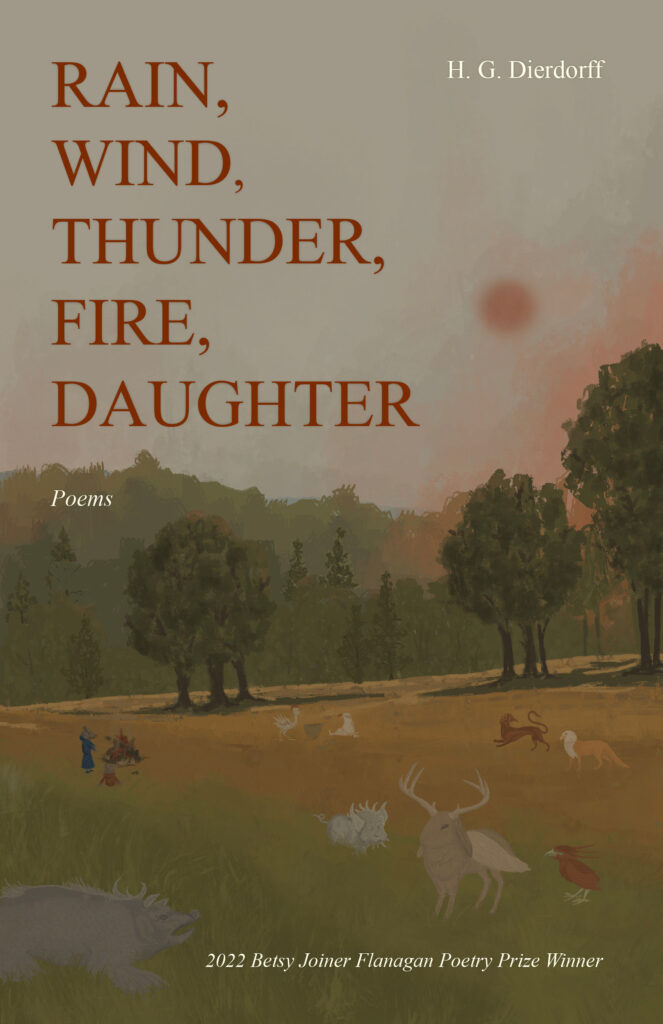
Dierdorff began working on these poems in early 2020, as a student in the UVA MFA program during COVID-19 isolating. What began as their project for Brian Teare’s ecopoetics class became fueled by Lisa Russ Spaar’s ecstasy class the following year.
“I was particularly interested in the tension between ecopoetry and ecstasy, and how they each differently conceived of language, the body, and desire. I thought of this as the conflicting pull between ecstasy’s desire for ‘elsewhere’ and ecopoetry’s commitment to ‘here,’” Dierdorff says. “Much of this book is my attempt to imagine what the role of ecstasy is in an environmental crisis.”
For Dierdorff, the combination of this engaging graduate work with the unsettling caused by the early stages of the pandemic proved to be a potent mix for writing. “I spent about a month and a half with my grandparents in the Blue Ridge Mountains of northern Georgia,” they recount. “I’d wake up every morning and write in this really uncomfortable chair, looking out the windows at the forest. … I’d attend classes over Zoom, read, or take long runs in the afternoons and drink box wine with my Nana in the evenings. In many ways, it was this very beautiful rhythm of life, but I was in a very manic, anxious state. …. The intensity of that silence changed me.”
Now, Dierdorff seeks to share that intensity with readers, prompting them to reflect on their complicity in our climate collapse as well as how they relate to her work. “The poems now exist between me and the reader, and that’s always how I want my language to exist: as connection, conversation. For the words to expand beyond my original intentions.”
